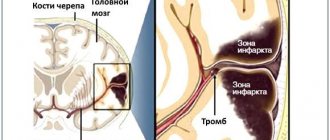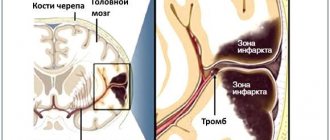Character accentuation is a psychological term that describes the most pronounced traits of a person. They prevail and determine the behavior of a particular individual. There are general patterns, so they talk about several accentuations that are inherent in large groups of people, albeit to varying degrees.
The sensitive personality type is an accentuation that was highlighted by Lichko (Leonhard did not have this type). Characteristic features are increased softness, vulnerability and sensitivity, kindness, dreaminess. It is difficult for such people to find themselves in life and in society. Especially if the person is a representative of the “stronger” sex, who is subject to additional stereotypical conditions. Often such people become the object of ridicule, and then quiet ostracism. These are classic outcasts for the most part.
No treatment as such is required. Still, accentuation cannot be called a disease. It's just a character trait. However, if you do not help the patient in any way, problems in life are possible. It is possible to correct the most acute character traits that interfere. To do this, you need the help of a qualified psychologist or psychotherapist.
Why does sensitive character accentuation develop?
There are several reasons for the development. In the vast majority of cases, there is a social component. The biological factor is of secondary importance. As for the immediate triggers.
Dominant mother
One of the main reasons why a sensitive type of character is formed. A tyrant mother tries to control the actions of her child. It doesn't matter whether it's a daughter or a son. As a result, self-doubt and fear develop. A person tries to please his mother so as not to become a victim of violence - verbal, and often physical in the early years. Sensitivity and sensitivity become a defensive reaction, one of the options. The child has to feel the mother’s mood very subtly, since a tyrannical woman depends on her mood. All her actions are impulsive. Often, especially if the mother is narcissistic, epileptoid, sensitivity reaches borderline personality disorder. Before real psychopathology. In this case, specialized treatment is needed.
Imperative type of education in general
Not only a mother can be a tyrant. A father or stepfather has an equally negative, destructive influence. Provided that he shows open aggression - he hits the child, scolds him with or without reason. Hidden aggression is also dangerous. Like “you upset me, try to guess why.” Often a narcissistic mother resorts to this style of behavior. Such manipulations do not end well, especially for young people. In the future, it becomes difficult to overcome your negative attitudes, habits and character traits. And in some cases it is almost impossible if we are talking about full-fledged psychopathy. When working with a psychologist, it is possible to achieve results in 95% of cases.
Permissiveness
The next type of negative parenting model. In this case, the diametrically opposite happens. Parents do not pay attention to the child at all, they turn him into an adult. He is forced to solve his problems himself. In this case, options are possible. Or a person becomes like an independent adult and takes on a role beyond his strength. Or he tries to get into the good graces of his parents, feel their mood and adapt to the situation. Both cases lead to devastating consequences for the psyche and the development of negative behavior patterns in the future. The only way to avoid developing negative traits is to give your child enough attention.
Negative experiences in the past
Applies more to teenagers. Children aged 9 to 18 years show aggression much more often. Irreconcilable and intolerant. Therefore, sensitive people and those prone to hypersensitivity often have problems. This is especially true for the male part of the population, since it is in such groups that rank wars occur. The weak, or those who seem so, are sure to find themselves on the sidelines, under ridicule. And that's the best case scenario. Physical violence, including serious injury, often occurs.
A person is unable to cope with this, so he withdraws and becomes a closed sensitive person, who is very difficult to draw out of his shell. A negative environment causes even greater social rejection in a man with sensitive accentuation. Personality traits become more acute. Severe psychopathology at the level of borderline development, psychopathy, is possible.
Congenital hereditary characteristics. Genetics
Often the reason for the accentuation of character, and any one, is congenital conditioning. Although personality is not directly passed on from parents and grandparents to children, certain tendencies are still inherited. This must be kept in mind during self-assessment or diagnosis by a professional psychologist.
Psychopathological conditions
In some cases, sensitivity may be confused with mental illnesses. For example, increased sensitivity is possible in some psychopaths, patients with schizophrenia in the early stages of the disorder. Neurotics also often find themselves in the same boat as other sensitive people. This also needs to be taken into account. First, a series of tests are performed to rule out psychopathology. Only then can we talk about the variant of the norm and the origin of the condition.
Low self-esteem
In some cases, cause and effect are reversed. A sensitive personality type does not always cause insufficient self-esteem. It also happens the other way around. In such a situation, a person feels flawed, unworthy of the attention of others or any benefits. Accordingly, negative feelings intensify and a negative worldview develops. The patient is prone to hypersensitivity. Although this does not always happen. It is possible to disguise one’s own personality and its features with imaginary aggression, feigned masculinity, masculinity. A sensitive person is a person of contradiction. Often he becomes an actor in order not to be a victim, to fit into society at least partially.
The classic example of a sensitive person from psychological literature is a melancholic person by temperament. He is constantly depressed and dreams most of the time. Responsive and kind to the whole world. Moreover, in some cases he is prone to veneration and servility.
Basic accentuations
Character accentuation is a psychological term that describes the most distinctive features.
The sensitive personality type is an emphasis highlighted by psychologist Lichko. Character traits:
- increased softness, vulnerability and sensitivity;
- kindness; daydreaming;
- inflated demands on oneself;
- low self-esteem;
- shyness;
- inability to refuse;
- excessive diligence and determination;
- tendency to hush up problems, touchiness, and tearfulness.
It is difficult for such people to find themselves in life and in society. Especially if the person is a representative of the “stronger” sex, since stereotypes come into play. Often sensitive people become the object of ridicule and then silent avoidance. It is worth noting the presence of seriously low self-esteem, even to the point of self-destructive thoughts and blaming oneself for all sins.
The main areas of interest are beauty, sophistication, art. As a rule, these people have good taste and aesthetic precision.
Sensitive personality type
By the way, among children the sensitive type is not found in its pure form. The development of accentuations occurs in a later period (14-19 years). A number of researchers believe that the presence of any accentuation is a deviation from the norm.
However, sensitivity should be accepted as one of the personality traits as long as it does not interfere with leading a quality lifestyle: being healthy, building happy relationships, advancing in your career, etc.
How does a sensitive personality type manifest itself?
The sensitive type according to Lichko is defined by a wide group of symptoms. If we can talk about such at all. Among the manifestations of accentuation:
Increased impressionability. A sensitive person is a psychotype who is easily unsettled by a rude word, an unexpected action, or a shocking scene. He has a reduced resistance to stress and does not tolerate it well. This is the main negative feature, which often interferes with life. Along with anxiety, which is worth mentioning separately.
Tendency to melancholy. Persistent or predominantly depressed mood. Feeling of sadness, hopelessness. The sensation is not as persistent as that of the dysthymic type, but still haunts the patient most of the time. It does not cause major difficulties, but in some cases it turns into full-fledged depression and mental disorders.
Often - sentimentality. A sensitive person may tear up at a scene in a movie or book. Because he deeply feels what is happening and has strong empathy. However, in this case he becomes fixated on the experience and derives some pleasure from it. Which is called sentimentality. Episodes of such “made”, artificial experiences are short-lived. They can be called a kind of entertainment.
Kindness. A sincere desire to help everyone. Despite the fact that patients of this type have a good sense of people, they are ready to extend a hand even to the unworthy. We are sure that there are no bad people. This is a positive feature, which, however, creates many problems. Sensitive people are often accused of insincerity and sycophancy. They perceive a noble impulse as an attempt to suck up and curry favor, to show themselves as a different person. Especially often if a person is in the wrong environment, among toxic elements.
Openness. Not always, you should immediately make a reservation. If the patient has experienced some kind of trauma or has a negative experience of social interaction, he closes down and becomes inaccessible to everyone. He sinks into the shell and doesn’t want to come out. You can cope with this, but it all depends on the time since the negative episode. The longer a sensitive person experiences his negative emotions, the more difficult it is from a therapeutic point of view.
Anxiety. Main feature. Almost a business card. Anxiety develops at the slightest provocation. Often the reasons are generally made up, like “what if it happens...”. This is the case when the patient screws himself up. In a system with impressionability and suspiciousness, these traits create a unique picture. Hypochondria, a fruitless search for imaginary diseases, often develops.
Conformity. Not always. The sensitive type of character accentuation is characterized by independent thinking. But this also happens. When the patient is inclined to think like everyone else and do like everyone else in order to fit into society and play by its rules. Conformity is not a typical trait. More like a way to disguise yourself for a certain period of time.
Problems in communication and social interaction. The noble impulses, thoughts and experiences of the psychotype remain misunderstood. Moreover, they cause aggression and rejection. In a negative scenario, this leads to total ostracism, forced loneliness and isolation. There is a way to deal with this. The main thing is to choose the right environment that will be close in spirit.
Vulnerability. It’s easy to offend a sensitive person. A sidelong glance, a rude word or a careless remark is enough. A person will experience resentment for a long time, almost like a stuck type.
Ambition. Which is quite unexpected, given the features described above. People with a sensitive type of accentuation crave recognition. They are persistent in achieving their goals and are ready to do anything to become part of society. This is the main motivation for patients of this type. At the same time, they play extremely honestly, and are not ready to go over their heads in order to achieve their goals. Most often they work where there is beauty. That is, tastes and interests lie in the sphere of art, science and the unknown.
Empathy. A distinctive feature of the psychotype. The ability to deeply feel the experiences of others and respond to them appropriately. This is a very valuable quality that allows you to be realized in many professions.
You can also name among the traits or symptoms compassion, a tendency to endure failures for a long time. The features mentioned above are the main ones.
Suitable professions
Anxious accentuators usually intuitively choose professions in which they will feel most comfortable. They have good qualities that are appreciated by employers: they are responsible and will never take on something that is beyond their capabilities, they will not take risks and put everything on the line, but if they take on something, they do it painstakingly, pedantically, honestly. In addition, sensitive people are very constant: changing jobs and going on adventures are not in their spirit. They are generally wary of everything new and unknown. They don’t need dizzying career growth, they need stability, even in one place.
When choosing a profession, you should avoid areas of activity that involve teamwork . Despite the special flair and mood of colleagues, a sensitive person prefers to work independently. Such people can be unbalanced if something heats up their nervous system to the limit, so they should stay away from professions that require endurance, will and high stress tolerance. Thus, it is better to avoid management, management, work in the rescue service, fire protection, police, business in key positions, diplomacy and politics.
A system of psychological tests can, even during school years, identify the area in which a child with increased sensitivity will feel most in demand and useful. It is best to choose technical specialties related to the repair, maintenance and operation of complex technical devices and devices. Sensitive young people make very thoughtful engineers with a high degree of responsibility and great analytical abilities.
Sensitive people are often creative people.
If you have a heightened perception of reality, you can become a famous artist or photographer, cinematographer, decorator, writer, poet, actor or art critic, museum curator, archivist. Sensitive people are sensitive not only to other people, but also to nature and animals , so professions such as veterinarian, zookeeper, gardener, ecologist, agricultural specialist, biologist, marine biologist, zoologist are suitable for them. Sensitive people also make good financiers, accountants, translators (of texts and books), mathematicians and composers. The main thing is not to work in a place where you will have to deal with a large number of people and emergency situations. They are contraindicated in medicine, pedagogy, insurance, stock exchanges, journalism, military affairs and other areas that require close contact with society and nerves of steel.
Classification of related personality types
The closest personality type is schizoid. There are mixed accentuators, the so-called sensitive schizoids. They have almost all the personal qualities described above. At the same time, there is a complete lack of empathy. The patient is not able to experience the emotions of others, and even poorly understands his own feelings. Can't express emotions. Tends to be withdrawn and socially isolated.
Schizoids experience grievances much easier. They literally don’t care about other people’s opinions, criticism and praise. They are not so alarming. In all other respects, we can talk about similar personality traits.
Emotive, stuck types, and conformist personalities stand close together.
Type characteristics
Sensitive people are characterized by increased susceptibility, impressionability, and low self-esteem.
The key feature of such individuals is self-doubt.
This type of psyche can be observed in a person already in early childhood. Sensitive children are fearful and anxious. They are often afraid of the dark, loneliness, and animals.
They do not like large groups of peers and feel uncomfortable during various competitions and competitions. In the company of strangers they can become very shy and withdraw into themselves.
At first glance, it may seem that such children have certain mental problems . In fact, it is enough for them to become emotionally close to people in order to stop closing themselves off from them.
In a familiar environment, in the company of friends, they demonstrate good communication skills, openness and friendliness.
The school period is also not easy, since noisy classmates, bustle and fights can have a depressing effect on children. At the same time, they gradually become involved in the educational process, make friends, and begin to show interest in learning.
How to recognize a sensitive personality type
The psychotype examination is carried out under the supervision of a qualified psychologist. At the initial appointment, the specialist conducts a full diagnosis. In what ways:
- Oral survey. Plays a primary role. Through the manner of speech, the way of expressing emotions and one’s own thoughts, vocabulary, and intonation, you can understand a lot. What, in fact, is what a specialist does.
- Testing. Specialized testing for psychotype. Special questionnaires are used: Shmishek, Lichko and others. Age is taken into account. Depending on this, special modifications of the test material are selected.
- Tests of cognitive abilities. As a rule, sensitive people have developed intelligence and can easily cope with IQ tests of various types: according to Eysenck, Raven and others. At the same time, minor deviations in one direction or another are possible. Also, with the help of intelligence tests, a specialist checks the integrity of cognitive abilities. This is important to rule out mental disorders.
Often, more than one consultation is needed to make a conditional “diagnosis”. After the essence of the phenomenon is determined, the question of the need for treatment is decided. Often therapy in the truest sense of the word is not necessary. It is important to correct the main negative traits that interfere with life.
Personal relationships of the sensitive
In personal, intimate relationships, sensitivity is fully realized. Ideally, if there are no psychological traumas. There are certain features that can be used to describe this psychotype:
- Loyalty and devotion. Such a person will not cheat, succumbing to a base impulse. He will remain faithful to the last, even to his own detriment. Even when the spouse is openly “walking”. This kind of honesty in relationships gives them strength. At the same time, the opposite side does not always appreciate the sensitive person for these positive qualities. There is a tendency to look for unworthy people as partners.
- Dedication. Willingness to sacrifice one's own interests for the sake of a common cause. In particular, act in the interests of the family. For example, with good professional prospects, you can stay at home with your children and the like.
- Kindness.
- Delicacy.
- Willingness to compromise. Patients with this psychotype do not have conflicts. They try with all their might to prevent swearing. And if it starts, smooth out the conflict and extinguish it as quickly as possible. This is a very valuable quality that allows you to save a marriage for many years.
Negative traits include anxiety and some tediousness in connection with imaginary problems. Closed, sensitive people often remain lonely throughout their lives, never finding their place in society. Especially representatives of the stronger sex. Unfortunately, this trend prevails because such a man cannot live up to the archaic stereotypes of centuries ago.
Sensitive-labile and schizoid-sensitive variants
Sensitive subjects, unlike expansive schizoids, are very sensitive to how others treat them. Nevertheless, there are mixed types, where sensitivity and schizoidity are combined, then schizoidity is the dominant feature.
More difficult is the distinction between sensitive and labile types. A sensitive teenager does not have bursts of joyful mood, there is a constant readiness for despondency, shyness, even in the most favorable environment - all this is usually not found in a representative of the labile type. Nevertheless, the combination of sensitivity with pronounced lability of emotions - slight despondency and tears, even when remembering long-standing troubles, and quick compliance with consolation and reassurance - forces some cases to be considered as a mixed type ("sensitive-labile variant"). However, unlike sensitive schizoids, here it is sensitivity that constitutes the main basis of character.
Career and professional activities
People with sensitive accentuation realize themselves best and most effectively in professions related to art and intellectual activity. Most often they choose the following specialties:
- Artist.
- Musician.
- Writer.
- Actor.
With the help of art, the patient has the opportunity to express the fullness of his own emotions, throw them out without the risk of being judged by society and the environment. Among intellectual activities, those that give the opportunity to help people prevail:
- Doctor.
- Lawyer (advocate, not prosecutor).
- Social worker.
- Teacher or lecturer.
Among the professional qualities of an employee with sensitive accentuation:
- Increased performance. Willingness to obey orders and get the job done.
- Responsibility. Such people do not miss deadlines and always do everything conscientiously.
- High level of professionalism.
- At the same time, the level of initiative is low. You can’t expect “rationalization proposals” from them. Unless you give a special sanction for this.
- They are gentle in leadership positions. They cannot lead imperatively. But they cope well with persuasion and a democratic management style.
A career directly depends on the correct upbringing and future environment of a person. By creating the necessary conditions, you can achieve high productivity and impact.
Is special treatment needed? Features of correction of behavior and personality of a sensitive person
If you believe the recommendations of psychologists, the situation needs to be corrected only when the condition creates problems for a person and interferes with life. It is important to eliminate several negative traits. For example, anxiety, a tendency to feel sorry for oneself, hypochondria, conformity. Here several methods of therapy come to the rescue.
- Cognitive-behavioural. The goal is to find negative patterns and behaviors and eliminate them. This is not a one-day job. Perhaps not for a month. It is mainly carried out under the supervision of a psychotherapist, not a psychologist. So the efficiency is much higher.
- Personal therapy. They identify the very reasons that have become an obstacle to the development of positive personality traits. For example, childhood traumas, failures. They are working on them, precisely.
In some cases, methods of psychoanalysis and art therapy are indicated. At the discretion of the treating specialist. Family, if there is one, plays an important role. Acquaintances and friends. This is additional motivation for personal growth and development.
What are sensitive periods
The concept of “sensitivity” is associated with another important mental phenomenon, this time in developmental psychology. Human development is a progressive process; it is associated not only with physical growth and maturation, but also with the formation of new mental functions, with the mastery of new types and techniques of activity. This is most pronounced in childhood.
But, as scientists involved in the problems of child psychology have noted, development, although progressive, is uneven. There are periods in it when the child’s psyche is most sensitive to the influence of the surrounding world and the formation of certain functions. These periods in development are called sensitive or sensitive.
- The sensitive period for the formation of speech skills is the age from birth to 5-6 years. Precisely from birth, since the foundations for mastering speech activity are laid in the baby from the moment of birth (and possibly earlier). By the age of 5-6, children not only speak fluently the language in which their relatives communicate with them, but also master the rules of phonetics and grammar, and even begin to master written speech.
- 6-10 years is a sensitive period for educational activities. Children at this age are not only open to everything new, their brains are plastic and receptive to a higher type of thinking - abstract-logical, conceptual. Younger schoolchildren also master operations with signs (counting and writing) and learn reflective activity.
- Adolescence is a sensitive period for self-discovery, and it ends with the formation of self-esteem. This period is also characterized by the development of communication skills and social functions.
- Early adolescence is important for the formation of a worldview, a system of life values and guidelines.
Sensitive periods are important not only because at this time the formation and development of mental functions is easier, but also because the lack of conditions for development during this period can lead to serious mental problems. For example, if a child aged 1-4 years does not have the ability to master speech or is simply interacted with very little, then he will most likely develop mental retardation. If a teenager is deprived of the company of his peers, he will have serious communication problems.
Prevention of sensitivity in children and adults
A sensitive child requires additional attention. To prevent the worsening of pathological traits, it is enough to adhere to a moderate, democratic style of education. If we talk about specific preventive measures:
- Enough love and attention.
- Open expression of one's own feelings for the child. This is an important component of the successful development of a young representative of the psychotype.
- Minimum penalties. Strict rationality in the choice of methods and occasions. No physical or psychological violence.
- Involving a child in work. Also sufficient motivation.
Mandatory involvement in activities in the field of art.











